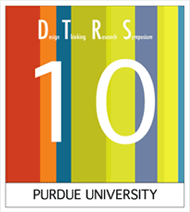Description
In post-secondary educational settings, discourse is a mechanism by which students develop occupational identities as they engage in a particular community that communicates attributes of their prospective profession. This study focuses on revealing disciplinary identities and how they are conveyed and negotiated during interactions between design students and project reviewers. We draw upon Gee’s identity framework and focus on the enactments of disciplinary identity in three different disciplinary settings: choreography, industrial design, and mechanical engineering. A cross-case analysis indicated differences that were epistemological (e.g., subjectivity of reviews) and similarities in ways instructors modeled institutional identities. The results have implications for interdisciplinary activities and suggest that disciplines that engage in design have much to learn from one another.
Keywords
choreography, design reviews, disciplinary identity, industrial design, mechanical engineering
Presentation slides
DOI
10.5703/1288284315934
Included in
A Cross-Case Analysis of Disciplinary Identities Communicated Through Design Reviews
In post-secondary educational settings, discourse is a mechanism by which students develop occupational identities as they engage in a particular community that communicates attributes of their prospective profession. This study focuses on revealing disciplinary identities and how they are conveyed and negotiated during interactions between design students and project reviewers. We draw upon Gee’s identity framework and focus on the enactments of disciplinary identity in three different disciplinary settings: choreography, industrial design, and mechanical engineering. A cross-case analysis indicated differences that were epistemological (e.g., subjectivity of reviews) and similarities in ways instructors modeled institutional identities. The results have implications for interdisciplinary activities and suggest that disciplines that engage in design have much to learn from one another.


Comments
This conference presentation was developed into a book chapter that was published in “Analyzing Design Review Conversations,” edited by Robin S. Adams and Junaid A. Siddiqui (2016, Purdue University Press), which can be found here:http://www.thepress.purdue.edu/titles/analyzing-design-review-conversations.